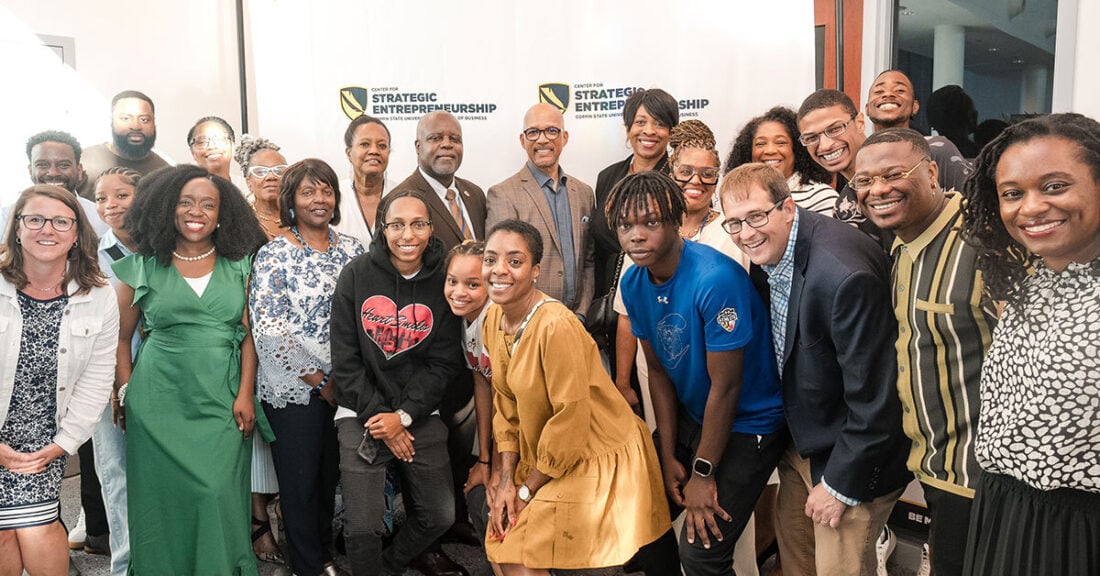New Research Sheds Light on Youth Entrepreneurship in Baltimore

Coppin State University’s Center for Strategic Entrepreneurship recently released Equipping Baltimore Youth & Emerging Adults for Opportunity, a report funded by the Annie E. Casey Foundation. It discusses findings from the Excellence in Entrepreneurial Learning (EXCEL) research project.
The Center — inspired by a 2017 Casey Foundation report — designed the project to better understand the kinds of entrepreneurship-related instruction available to youth and emerging adults between the ages of 16 and 29 in Baltimore City. Thirty-five providers were interviewed as part of the project.
EXCEL
Coppin State University researchers launched EXCEL in the Spring of 2023. A multidisciplinary team conducted research over the next year.
The study explored the following aspects of instructional programs:
- structure;
- partnerships;
- methods;
- effectiveness measures;
- challenges;
- trauma-informed approaches; and&
- engagement beyond the instructional period.
The study also established metrics to determine the value and impact of specific entrepreneurship programs. These metrics measure aspects such as sustainability, quality, equity and return on investment.
Young Entrepreneur Perspectives
HeartSmiles — a Baltimore nonprofit that mentors young people and builds leadership skills — chose five youth and emerging adults to provide important input on the EXCEL research project. Each young person analyzed data, reviewed drafts of the report and helped plan the Coppin State University’s Economic Inclusion Conference events related to the project and the eventual release of the report.
“It was incredibly important that young entrepreneurs contributed to this project throughout the process,” said Dr. Ronald C. Williams, director of the Center for Strategic Entrepreneurship. “Their contributions were vital to the EXCEL research project’s success.”
Shelah Johnson — founder of the youth program Mentoring Lives and a current senior at the University of Maryland — found collaborating with his fellow HeartSmiles members on the EXCEL project to be incredibly rewarding. “Working alongside each other brought out the best in all of us and that teamwork really allowed us to grow and improve,” said Johnson. “Dr. Williams created a very inclusive and collaborative environment where each team member felt valued. I truly believe we made a meaningful impact on the project’s direction and execution.”
Equipping Youth and Young Adults
Using the collected data, the report came to three major conclusions:
- A new generation of entrepreneurs benefits the economy. Policies and programs that encourage and nurture entrepreneurship will help create jobs, generate wealth for communities and spur economic growth.
- Young entrepreneurs need supportive infrastructure. To ensure young people can participate in instructional entrepreneurship programs, they need to provide benefits like transportation and child care services. The report also recommends developing alumni networks and developing programs that incorporate hybrid online/in-person learning models.
- Entrepreneurship programs benefit from partnerships with local businesses and organizations.This can include peer support groups and trauma-informed support, such as counseling and mental health resources.
What’s Next for the Center for Strategic Entrepreneurship?
Going forward, Coppin State University’s Center for Strategic Entrepreneurship will:
- assess specific findings and continue to gather data;
- engage an expanding network of community members and stakeholders from academic, public and private sectors; and
- maintain a focus on learning.
“In our conversations with young people in Baltimore, many shared that they crave entrepreneurship and resources to build businesses free from discrimination and that benefit their communities,” said Sara Cooper, a senior associate with the Casey Foundation. “The findings from Coppin State’s study will not only help us better understand Baltimore’s complex landscape of instructional entrepreneurship programs, but also how programs and the ecosystem can be improved to better serve young entrepreneurs.”
Discover how the Casey Foundation is supporting Baltimore’s entrepreneurs of color.





